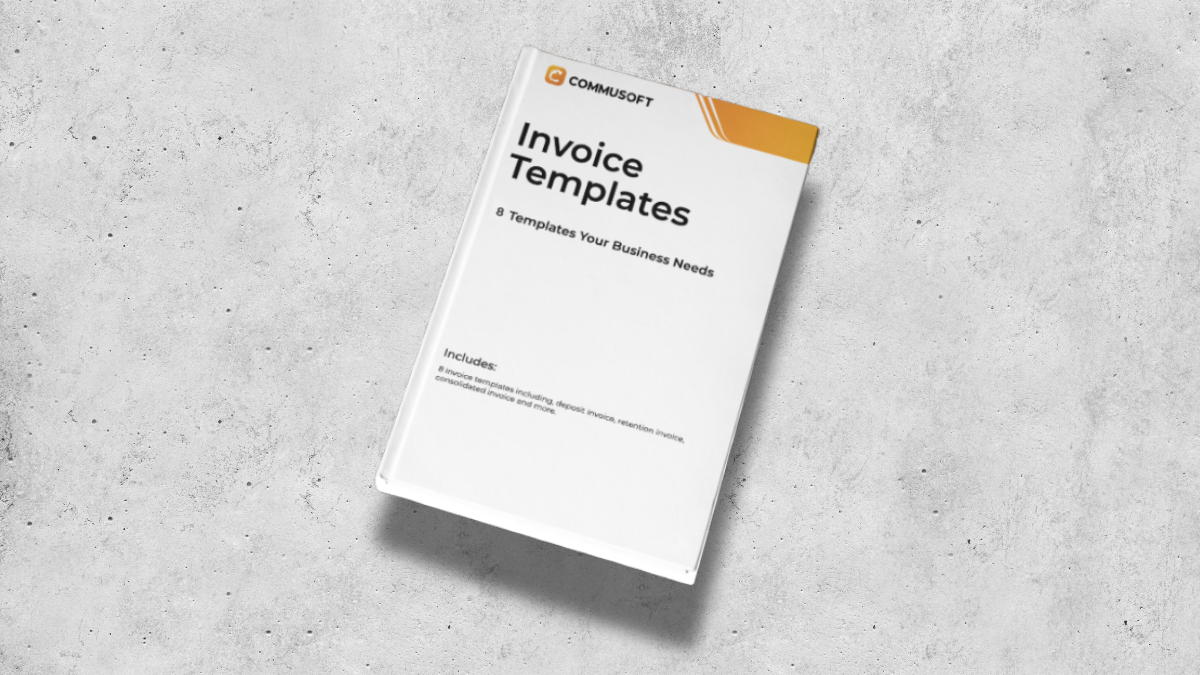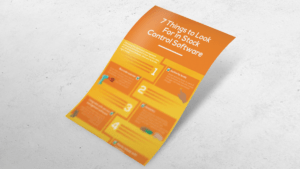7 Supplier Audit Checklist Questions to Ask Before Choosing a Vendor
July 5, 2021 | Read: 8 minutes

How do you know you’ll get the best possible prices from the right suppliers? You create a supplier audit checklist!
Below is some help we’ve provided to achieve that goal.
The process will require you to set aside a few hours to do some research.
In that time, you need to ask yourself the seven key supplier evaluation questions listed below.
Let’s dive into what it means to put together a supplier audit checklist.
As a small or medium-sized field service business, you probably don’t have manufacturer representatives banging down your doors.
You’re more likely to purchase parts and supplies as needed, be it online or by visiting brick-and-mortar retailers like Wolseley, Plumbcenter, or Screwfix.

Your first instinct might be to choose the closest supplier to where you operate and be done with it or to select the one you’ve heard has the lowest prices.
While it’s not wrong to simplify your parts purchasing process in this way, it’s also true that it can lead to overspending, wasted time, and irritated customers.
Let’s take a look at what you can do to prevent that from happening:
1. Which traits are most important to my business?
A high-quality service that’s also delivered quickly is not easy to provide. In an ideal world, all your customers would be patient, let you do good work, and always pay a fair price.
It’s like the old saying: “Good, fast, cheap—pick two!”
This well-worn project management adage is called the ‘Triple Constraint.’
- If the service is excellent and fast, it won’t be cheap.
- If it’s cheap and fast, it likely won’t be good.
- But it won’t be fast if it’s cheap and good.
Getting the right parts can let you work efficiently, and that’s why finding the right supplier who meets your needs is so important. While you probably won’t get everything you’ll want from a single supplier, if you prioritise the traits that are most important to you, you’ll be able to see improvements in no time.
Below, we’ve listed eight common supplier evaluation traits for you to consider, and they are recommended by The Next Level Purchasing Association. You can consider which of these traits most appeals to your business when thinking about prioritising your choice of supplier/s; tick them off on your own supplier audit checklist:
- Cost
- Quality & Safety
- Delivery
- Service
- Social Responsibility
- Convenience/Simplicity
- Risk
- Agility

Deciding on the traits most relevant to your business can give you a better idea of how your suppliers can positively impact your ability to provide remarkable customer service and more efficiently deliver great work.
Before beginning your search for a supplier, consider which traits are most important to your business and which are the least. You may have some criteria of your own, as well. Add them to the list and start ranking suppliers to make an assessment.
Ultimately, you’ll be in a better place to ensure you’ve found the one that suits you best.
Further reading:
What’s better—buying parts only when needed or stocking in advance?
Click to read 5 suggestions to help you better manage your stock.
2. Which suppliers offer more of what we want?
It’s time to create a list of the suppliers you want to evaluate based on your chosen criteria. A Google search for online suppliers and brick-and-mortar retailers in your area will open many options. There may be the usual big-name suspects, but don’t discount other, smaller retailers either.
After all, there’s no reason you can’t purchase parts at multiple locations. However, the benefit to choosing a preferred supplier is that they’re more likely to offer extra help or grant discounts if you’re a frequent purchaser and loyal customer.
Once you have your list, visit the retailers’ websites to compare how well they fulfill your most important criteria. For example, if the price is your primary consideration, compare how much the same parts cost at multiple locations. If it’s the delivery speed, check out their delivery options and how much they charge.
3. Do other field service businesses recommend these suppliers?
It never hurts to learn from your peers. Their advice and experiences can dramatically inform your supplier audit. This gives your checklist much more weight as you take on feedback and insights.
You check out reviews when choosing a restaurant, looking for a new car, or deciding what takeaway to order. Customers will look at the best websites for company reviews when searching for you, so why not let reviews guide you to a fantastic supplier, too?
Trade associations, the trade press, and online forums like UKPlumbersForums are good places to find opinions from actual customers. You can even reach out on Facebook or LinkedIn Groups and email other businesses. Every interaction can help you make a more informed decision.

4. Do the suppliers offer trade accounts?
Many parts retailers offer trade accounts that come with perks like discounted prices. Cheaper (but still high-quality) parts can mean more profit for you! Search for deals and consider their impact as you assemble your supplier audit checklist.

However, here’s some food for thought: tempting as it can be to put “cost” as a critical criteria, pricing isn’t everything. Your choice should also not be based on who’s the cheapest.
Getting suitable materials supplied consistently without costing you the earth is more important than the odd saving here and there. Instead, you’ll be in a stronger position to do great work and deliver better customer service; the knock-on effect to efficiency may even boost your profits!
5. Are the products less expensive with the trade discount?
Buyer beware: Just because a supplier offers a trade discount doesn’t mean they’re your most cost-effective option. It’s thorough research that informs your supplier audit, not promises!
Don’t be fooled! Some field service businesses complain that suppliers sometimes raise their prices to offer supposed discounts, but the net effect is null.
A supplier may also have higher prices, so the trade discount doesn’t make prices cheaper than a competitor. Doing your due diligence can help you avoid these problems.
6. For a brick-and-mortar merchant, are they willing to match internet prices?
If you want to support your local parts supply retailer but don’t want to pay a premium for the privilege, find out if they’ll match the prices you find online.

At the end of the day, suppliers will want to make a sale as much as you want to get a fair price for your services. And as they say: “If you don’t ask, you don’t get!”
At the very least, you might find that your local shop can match prices (or get close to them), all whilst offering you the convenience of being local. That’s worth paying for if it means you don’t need to wait.
Finding the best deals is becoming increasingly common. Whilst, again, it shouldn’t be a fight to the bottom, there’s no reason why you can’t negotiate to get a great deal.
This goes back to what we mentioned above; if you convince the supplier you’ll be a loyal, frequent customer, they may agree to price-match for you.
7. What does my gut say?
Once you’ve gathered data on how the suppliers match your top criteria, it’s time to choose the big winner. If you have two or three close contenders, sometimes it comes down to your gut instinct.
While many business owners scoff at using instinct to make decisions, experts say intuition should be in your decision-making toolbox.
“Leaders gather data and seek input but at some point, they reach the over-thinking tipping point”
Shelley Row, MBA, author of Think Less Live More: Lessons from a Recovering Over-Thinker, in an article on Forbes.com.
That’s the point where the time needed to gather more data and input exceeds the value. They must decide and move on.
The Takeaway: Stock Control Software is the answer.
It’s essential to select the dealers you purchase parts from carefully: that’s why a supplier audit is so handy for old and new businesses!
After all, if their parts are too expensive or their delivery is slow, this can negatively impact your company. Instead, the right provider can help you from losing profits, improve first-time fix rates, and help you deliver world-class customer journeys.
Whether you feel like you’re over-thinking your parts management or perhaps not giving it enough time, job management software can help you better handle your stock and inventory.
Download ⬇️: Are you ready for stock control?
Download ⬇️: 7 Things to Look For in Stock Control Software
If you’re interested in taking things even further, you should know that Commusoft’s field service management software can help you manage and track parts, take care of invoicing, manage supplier purchase orders, and so much more.
On that point, we’d encourage you to investigate Commusoft’s automated supplier management functionalities and learn how we’ve taken significant steps to streamline the tedium that can often come with dealing with suppliers, even in a digital world!









